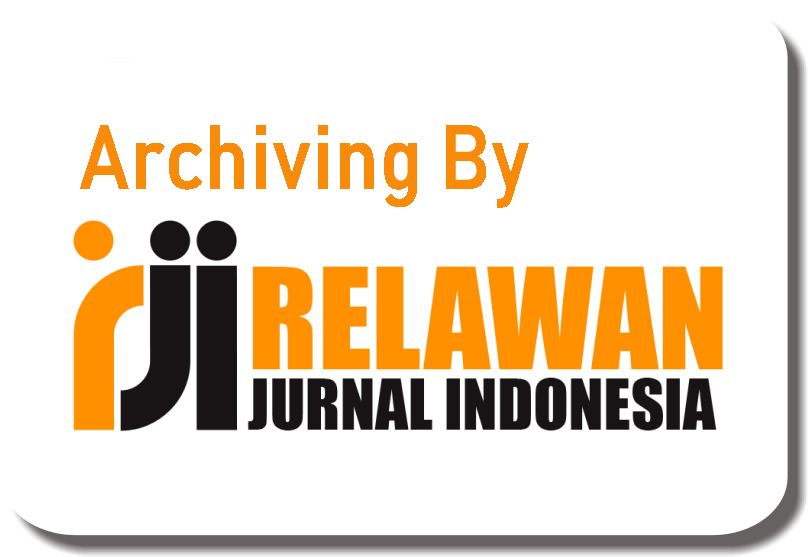From Subaltern to Subject: Women's Struggle Against Patriarchy in North Country (2005)
Abstract
Women’s struggles against patriarchy remain a crucial subject in feminist and postcolonial scholarship, yet limited attention has been given to how cinema contributes to theorizing subaltern subjectivity. This study addresses the gap by analyzing North Country (2005) through feminist criticism and postcolonial theory, particularly Spivak’s concept of the subaltern. The purpose is to examine how women’s silenced voices in patriarchal structures are represented and how subaltern subjectivity transforms into political agency. Using qualitative textual and film analysis, the study integrates Spivak’s subalternity with Butler’s performativity, Foucault’s disciplinary power, Fraser’s redistribution and recognition, and Mohanty’s transnational feminism. Findings show that the mine functions as a patriarchal microcosm, but resistance and solidarity enable women to reclaim voice and agency, redefining the feminist maxim “the personal is political” and extending its resonance transnationally. The study concludes that North Country (2005) is a cultural artifact dramatizing the journey “from subaltern to subject,” underscoring cinema’s role as a theoretical production.
Keywords
Full Text:
PDFReferences
Arfanaldy, S. R. (2024). Innovation Management Strategy In The Development Of Educational Startups Case Study On Excellenz Digital Education, Kuningan Regency [UIN Siber Syekh Nurjati Cirebon]. https://repository.syekhnurjati.ac.id/15003/
Denzin, N. K., & Lincoln, Y. S. (2017). The SAGE Handbook of Qualitative Research (Fifth Edit). SAGE Publications, Inc.
Ebert, T. L. (1988). The Romance of Patriarchy: Ideology, Subjectivity, and Postmodern Feminist Cultural Theory. Cultural Critique, 10, 19. https://doi.org/10.2307/1354105
Foucault, M. (1977). Discipline and Punish. Vintage Books.
Fraser, N. (1995). Recognition or Redistribution? A Critical Reading of Iris Young’s Justice and the Politics of Difference *. Journal of Political Philosophy, 3(2), 166–180. https://doi.org/10.1111/j.1467-9760.1995.tb00033.x
Hanisch, C. (1970). The personal is political. In Notes from the second year.
Harvey, A. (2020). Feminist Media Studies. Polity Press.
Hooks, B. (2000). Feminism is for Everybody. South End Press.
Johnson, E. P. (2001). “Quare” studies, or (almost) everything I know about queer studies I learned from my grandmother. Text and Performance Quarterly, 21(1), 1–25. https://doi.org/10.1080/10462930128119
Kamir, O. (2009). North Country ’s Hero and Her Cinematic Lawyer: Can “Lawyer Films” and “Women’s Films” Merge to Launch a New Feminist Sub-Genre? Canadian Journal of Women and the Law, 21(1), 119–142. https://doi.org/10.3138/cjwl.21.1.119
Loomba, A. (2015). Colonialism/Postcolonialism. Routledge.
Masduki, Arfanaldy, S. R., Pamuncak, M. B., & Fahmi. (2025). Urgency of Multicultural Education in Building a Civil Society: International Journal of Islamic Thought and Humanities, 4(1), 117–129. https://doi.org/10.54298/ijith.v4i1.399
McKee, A. (2003). Textual Analysis A Beginner’s Guide. SAGE Publications, Ltd.
Mohanty, C. T. (1984). Under Western Eyes: Feminist Scholarship and Colonial Discourses. Boundary 2, 12(3), 333. https://doi.org/10.2307/302821
Mulyadi, Iskandar, D., & Fauzi, M. (2022). Sarcastic Utterances in North Country Film as English Teaching Materials. World Journal of English Language, 12(4), 57. https://doi.org/10.5430/wjel.v12n4p57
Murer, B. (2015). Josey’s Struggle To Reach Equality In “North Country” Film By Niki Caro (2005): A Feminism Approach [Universitas Brawijaya]. http://repository.ub.ac.id/id/eprint/101733
Pelletier, D., Kraak, V., McCullum, C., Uusitalo, U., & Rich, R. (1999). The shaping of collective values through deliberative democracy: An empirical study from New York’s North Country. Policy Sciences, 32(2), 103–131. https://doi.org/10.1023/A:1004641300366
Rifky, S. (2024). The Impact of Using Artificial Intelligence on Higher Education. Indonesian Journal of Multidisciplinary on Social and Technology, 2(1), 37–42. https://doi.org/10.31004/ijmst.v2i1.287
Sa’adah, Z., Permatasari, R., & Nurhamidah, I. (2025). Gender Stereotypes in Action Movies: A Study of Wonder Woman and Black Widow. Indo-MathEdu Intellectuals Journal, 6(2), 2302–2310. https://doi.org/10.54373/imeij.v6i2.2908
Salman, M., Ahmad, S., & Arshad, K. (2023). Language, Society and Gender: A Critical Discourse Analysis of the Linguistic Variation in the Language of Men and Women in the Movie North Country. Journal of Social Sciences Review, 3(2), 403–416. https://doi.org/10.54183/jssr.v3i2.265
Spivak, G. C. (1988). Can the Subaltern Speak? In Marxism and the Interpretation of Culture (pp. 271–313).
Tong, R. (2009). Feminist Thought: A More Comprehensive Introduction (Third Edit). Westview Press.
DOI: https://doi.org/10.31004/jele.v10i5.1457
Refbacks
- There are currently no refbacks.
Copyright (c) 2025 Zumrotus Sa’adah, Idha Nurhamidah, Nailil Muna, Destary Praptawati

This work is licensed under a Creative Commons Attribution-ShareAlike 4.0 International License.




